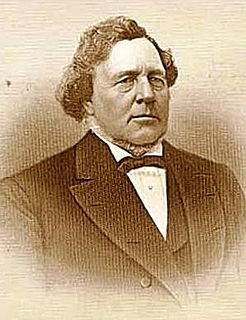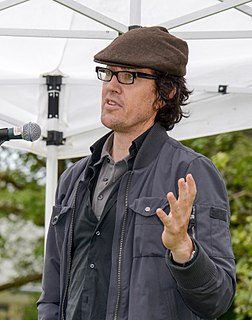A Quote by Victor Serge
What with the political monopoly, the Cheka and the Red Army, all that now existed of the 'Commune-State' of our dreams was a theoretical myth. The war, the internal measures against counterrevolution, and the famine (which had created a bureaucratic rationing apparatus) had killed off Soviet democracy. How could it revive, and when? The Party lived in the certain knowledge that the slightest relaxation of its authority would give day to reaction.
Quote Topics
Against
Apparatus
Army
Authority
Bureaucratic
Certain
Certain Knowledge
Commune
Could
Created
Day
Democracy
Dreams
Existed
Famine
Give
Had
How
Internal
Knowledge
Lived
Measures
Monopoly
Myth
Now
Off
Our
Our Dreams
Party
Political
Rationing
Reaction
Red
Red Army
Relaxation
Revive
Slightest
Soviet
State
Theoretical
War
Which
Would
Related Quotes
The great error of nearly all studies of war, an error into which all socialists have fallen, has been to consider war as an episode in foreign politics when it is especially an act of internal politics and the most atrocious act of all . . . Since the directing apparatus has no other way of fighting the enemy than by sending its own soldiers, under compulsion, to their death-the war of one state against another state resolves itself into a war of the state and the military apparatus against its own people.
Our prime minister could embrace and forgive the people who killed our beloved sons and fathers, and so he should, but he could not, would not, apologise to the Aboriginal people for 200 years of murder and abuse. The battle against the Turks, he said in Gallipoli, was our history, our tradition. The war against the Aboriginals, he had already said at home, had happened long ago. The battle had made us; the war that won the continent was best forgotten
She smiled. She knew she was dying. But it did not matter any longer. She had known something which no human words could ever tell and she knew it now. She had been awaiting it and she felt it, as if it had been, as if she had lived it. Life had been, if only because she had known it could be, and she felt it now as a hymn without sound, deep under the little whole that dripped red drops into the snow, deeper than that from which the red drops came. A moment or an eternity- did it matter? Life, undefeated, existed and could exist. She smiled, her last smile, to so much that had been possible.
What happened to the Soviet Union happened mainly for domestic reasons. It was a failure of the model based on a command economy and dictatorship. The rejection of freedom and democracy, the decisionmaking monopoly of one party, and the monopoly of one ideology all had a chilling effect on the country. That model turned out to be incapable of making structural changes. It did not open up ways for initiative and was overly centralized.
A few years ago, I was trying to buy a piece of land next to a house I had in Newfoundland. I discovered that the plot had been owned by a family, and the son had gone off to World War I and been killed. It began to interest me: What would have happened on that land if the son had lived, had brought up his own family there?
The U.S. directed the war against South Vietnam. There was a political settlement in 1954. But in the late '50's the United States organized an internal repression in South Vietnam, not using its troops, but using the local apparatus it was constructing. This was a very significant and very effective campaign of violence and terrorism against the Vietminh - which was the communist-led nationalist force that fought the French. And the Vietminh at that time was adhering to the Geneva Accords, hoping that the political settlement would work out in South Vietnam.
When we speak of the origin of western democracy it's precisely here, in this territory that the modern definition of democracy first emerged in city/states known now as Greece. This was coming from a society in which 30 thousand citizens had rights and 300 thousand were slaves and citizens without rights that lived in this territory. So that was the concept of western democracy; some citizens had the prerogative of exerting their civil and political rights while the others had none.
In Russia itself the proletariat conquered in spite of the fact that there was no Soviet State in existence at the time elsewhere. For the victory are necessary, not only certain objective conditions, internal as well as external, but also certain subjective factors - the Party, the leadership, the strategy.
It was only my second night in Africa, yet something had begun to grow inside me which I could not stop, as if my childhood dreams had finally found the place where they could materialize. I had arrived where I was always meant to be. I did not know how it could be practically achieved, but I was certain beyond any shadow of a doubt that it was here that I wanted to live.
When I was a model at 15, I was eating one red pepper a day, and if I had a big day of castings, I would survive off a bag of Haribo, which gave me the 500 calories a day that would keep me alive. I was congratulated daily on my appearance - the more vertebrae upon my back you could count, the better my auditions went.
We speak of facts, yet facts exist only partially to us if they are not repeated and re-created through emotions, thoughts and feelings. To me it seemed as if we had not really existed, or only half existed, because we could not imaginatively realize ourselves and communicate to the world, because we had used works of imagination to serve as handmaidens to some political ploy.
"Don't you want to abolish state power?" Yes, we do, but not right now. We cannot do it yet. Why? Because imperialism still exists, because domestic reaction still exists, because classes still exist in our country. Our present task is to strengthen the people's state apparatus - mainly the people's army, the people's police and the people's courts - in order to consolidate national defense and protect the people's interests.
Carl Armstrong was one of those people in the anti-war years who had been so convinced of the righteousness of their cause that he and some friends decided they would blow up a building at the University of Wisconsin, in which they said research was being done to help the war against the Vietnamese. What they blew up at three or four in the morning was a young scientist, who was married and had a couple of kids, who wasn't working on war stuff at all. And he was killed.







































